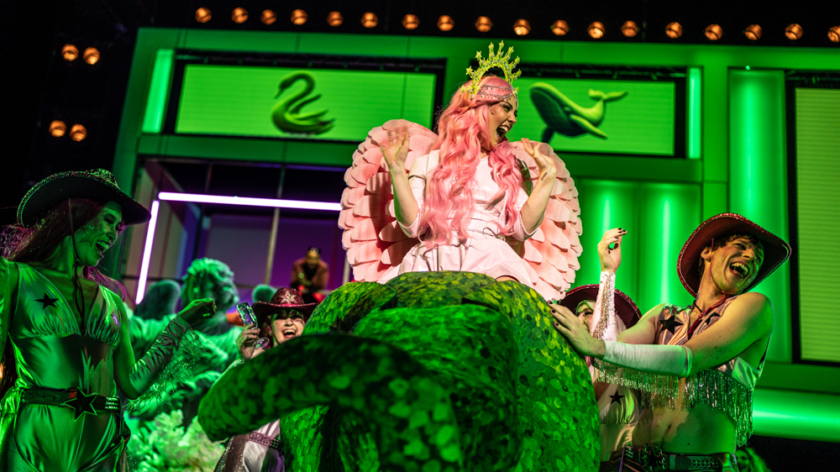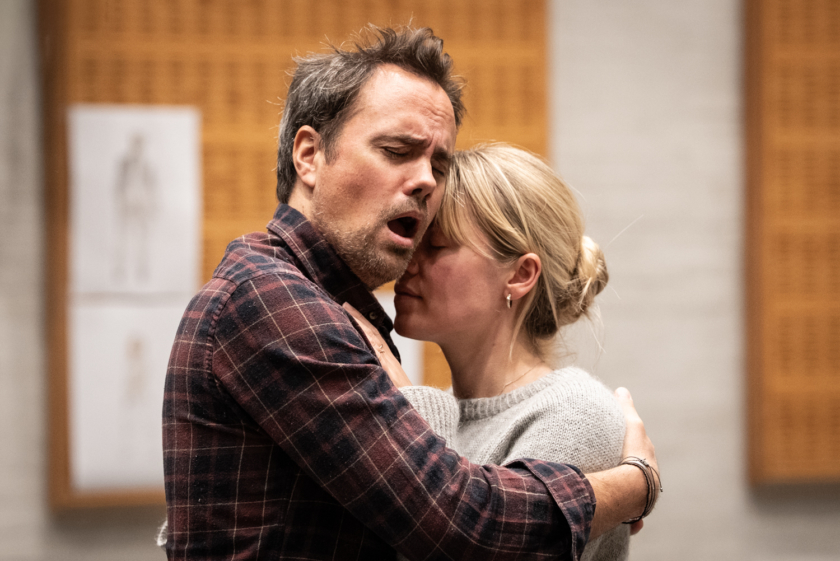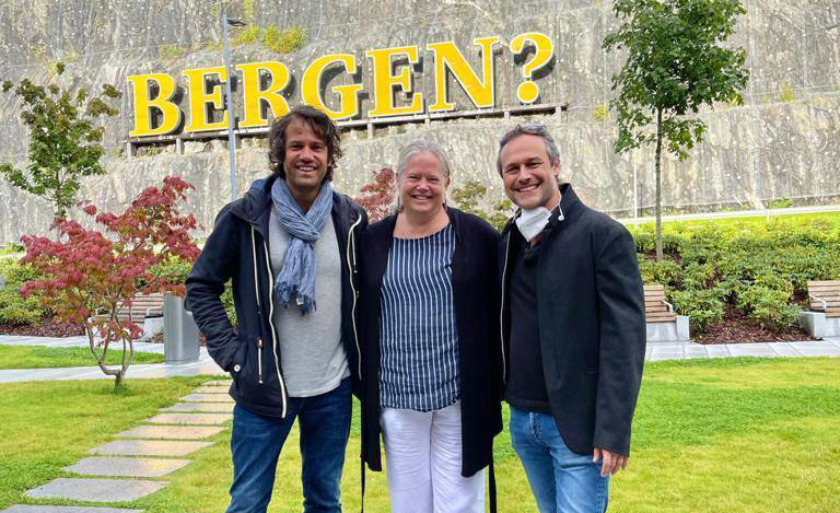A prodigy rediscovered
Erich Wolfgang Korngold had an extraordinary life, buffeted between three very different worlds: Mahler’s Vienna, Errol Flynn’s Hollywood, and the years of reckoning that followed World War II.
“Today I received your son’s compositions and have read them with the greatest astonishment,” Richard Strauss wrote to the music critic Julius Korngold in 1910. “The first feeling one has when one realises that this was written by an 11-year-old boy is that of awe and concern that so precocious a genius should be able to follow its normal development.”
The child prodigy Erich Wolfgang Korngold’s story was anything but normal. His was an extraordinary life, buffeted between three very different worlds: Mahler’s Vienna, Errol Flynn’s Hollywood, and the years of reckoning that followed World War II.
He was born in 1897 in Brno, Moravia, the younger of two sons of Julius and Josefine Korngold. Trained as a lawyer, Julius became a professional critic after gaining the support of Johannes Brahms, whose Symphony No. 4 he had praised. When Erich was four years old, Julius was appointed to the influential newspaper Die Neue Freie Presse in Vienna, becoming second in command to Eduard Hanslick, whose sharp pen was often used to laud Brahms and tear Wagner to shreds.
On Hanslick’s retirement, Julius was appointed in his place. His judgmental words over the city’s hot-house musical life were often splashed across the front page – and the next three pages too. He soon took as his enemy no. 1 the music of the Second Viennese School – Schoenberg, Webern and Berg – whose revolutionary atonal and serialist language he loathed as much as his predecessor had loathed Wagner.
Erich’s talent showed itself rapidly. At nine he played his own music to Mahler, who declared him a genius and advised that he take lessons with Alexander von Zemlinsky. Alma Mahler, the composer’s wife, was kind to the little boy and Erich never forgot this. Decades later, when both he and Alma were in exile in the US, he dedicated his Violin Concerto to her. At 13 his ballet-pantomime Der Schneemann was performed at the Vienna Hofoper in front of visiting Belgian royalty.
Here is the violinist Daniel Hope playing the sweet Serenade from Der Schneemann (The Snowman):
At 15 he composed a colourful Sinfonietta overflowing with melodic inspiration; and his first operas, a double-bill of one-acters, Der Ring des Polykrates and Violanta, were premiered when he was 17. Meanwhile, his father was keeping him well away from any potential influence from Berg and Schoenberg – who, for their part, were quite disappointed to be rebuffed.
Korngold started work on his most celebrated opera, Die tote Stadt, when he was 19, with a libretto he co-wrote with his father (it is mostly Julius, however), under the joint pseudonym Paul Schott. It is based on Georges Rodenbach’s Symbolist novella Bruges-la-morte and its theatrical adaptation by Siegfried Trebitsch. Its simultaneous double premiere took place in Hamburg and Cologne on 4 December 1920; soon afterwards it was staged in Vienna. Korngold, now 23, appeared to have “arrived”.
The opera, in which Paul struggles to come to terms with the death of his wife, hit home in the aftermath of the First World War. It soon became standard repertoire across Europe, and the star of the Viennese production, the dramatic soprano Maria Jeritza, chose it for her New York debut in 1921.
The most famous song from Act 1 in Die tote Stadt is "Glück, das mir verblieb" (Joy, that stayed with me). Here is the duet with soprano Julia Kleiter as the dancer Marietta and tenor Jonas Kaufmann as the widower Paul:
At the time he began the opera Die tote Stadt, Korngold had been serving as musical director of his army regiment, which saved him from active service in World War I. His commanding officer remarked that a march Korngold had composed was rather fast. Korngold – famous for his quick wit – quipped: “Yes, but it’s for the retreat.”
But another joke had circulated when Erich was a child. One musician says to another, “I hear you are playing young Korngold’s sonata. Is it grateful?” “No,” comes the reply, “but his father is.” Rumours flew that Julius Korngold would give good reviews only to musicians who played his son’s works; but as Michael Haas, director of Vienna’s exil.arte Centre points out, the reverse became true: Julius, aghast at being thought biased, over-compensated by giving terrible reviews to the musicians most supportive to his gifted son. This backfired unfairly against Erich. His toxic relationship with his cantankerous, over-possessive father continued to deteriorate.
When Erich married Luzi von Sonnenthal, a young actress from a famous theatrical family, it was the happy resolution of a long courtship that had almost ended in disaster: Julius disapproved of Luzi’s profession and believed, furthermore, that romantic attachment would distract Erich from composing. The young couple held fast and the marriage took place in 1924.
Far from distracting him, Luzi was the dedicatee of Erich’s most ambitious work: his opera Das Wunder der Heliane (1927). With this massive score, in which a passionate messiah-like figure comes to a dystopic realm where love has been outlawed, he hoped to make his break as independent artist at last. This time, however, Julius’s meddling placed him at the heart of a public controversy that pitted Heliane against Ernst Krenek’s down to earth, modernistic opera Jonny spielt auf. Audiences were attracted and the opera seemed successful, but a slew of problems ranging from an indisposed singer to vicious anti-Semitic protests conspired against its fortunes.
Galloping inflation after the First World War had eaten up Korngold’s savings, he had a young family to support and he was desperate to escape his father’s sphere of influence. After the Heliane debacle, he accepted a post arranging and conducting operettas at the Theater an der Wien. Here he met the great stage director Max Reinhardt; the two became close friends.
Reinhardt hastened out of Germany to the US when Hitler came to power in 1933. There, at the Hollywood Bowl, he staged an extravaganza production of A Midsummer Night’s Dream. When Warner Brothers decided to film it, he invited Korngold to America to arrange Mendelssohn’s music for the movie.
Here is a trailer for A Midsummer Night’s Dream:
Jack Warner, head of the studio, soon spotted Korngold’s potential as a film composer; soon he was commuting between Vienna and Los Angeles, writing music for swashbucklers such as Captain Blood, which launched Erroll Flynn and Olivia de Havilland’s careers, and Anthony Adverse, for which his score won an Oscar (though it was presented to the studio’s head of music, rather than to its composer!).
He had the foresight to apply in 1936 for American citizenship; and fortuitously he was in the US, scoring The Adventures of Robin Hood (another Oscar winner), when the Anschluss took place: Hitler annexed Austria and turned at once upon its Jewish population. Julius and Josephine managed to escape to join Erich in California, along with his elder son, Ernst (the younger, George, was in Hollywood with Erich and Luzi).
The reality of permanent exile hit Korngold hard. Devastated, he vowed not to write any more concert music until Hitler had been defeated. Instead, he at first approached his film scores idealistically, viewing them as “operas without singing” and much enhancing, among others, The Constant Nymph, The Sea Hawk, The Prince and the Pauper, The Private Lives of Elizabeth and Essex and Deception, which included a miniature cello concerto to which he later gave a life of its own.
Here is the French cellist Victor Julien-Laferrière together with Frankfurt Radio Symphony in this energetic and short concerto – that lasts less than a quarter of an hour:
“Music is music,” he said, “whether it is for the stage, rostrum or cinema. Form may change, the manner of writing may vary, but the composer needs to make no concessions whatever to what he conceives to be his own musical ideology.” In some cases his film music is based on ideas he had jotted down in a notebook years earlier; in others, he was later able to recycle themes from the scores, completely transformed, in concert works including the Violin Concerto and the Symphony in F sharp.
The Violin Concerto was premiered by Jascha Heifetz in 1947, when Korngold was cherishing hopes of making a comeback. Writing film music, in reality, had always been the thin end of the wedge, especially as when the movies disappeared from the cinemas, his music disappeared with them. Additionally, he had envisaged scripts on a somewhat more elevated level. Once, asked why he was leaving film work, he responded: “When I first came to Hollywood, I could not understand the dialogue. Now I can.”
Enjoy the whole Violin concerto, here with James Ehnes as soloist. The first and glimmering tones are from the movie Another Dawn:
His attempt to return to Vienna in 1950 lasted only two years. It proved almost impossible to get performances off the ground, facing cancellations, misunderstandings and the fact that plenty of ex-Nazis still held positions of influence. As for the general zeitgeist in post-war attitudes towards music, this demanded first of all a complete break with the past, especially the lavish late romanticism in which Korngold had grown up; and secondly a purity of outlook untainted by commercial concerns. The fact that Korngold had escaped death at the hands of the Nazis only through luck, and was using what money he made in Hollywood to help fellow refugees, seemed to have escaped notice.
After his struggles with his father and then the loss of his homeland, Korngold now had to contend with cultural expectations and prejudices that he could scarcely comprehend. “Don’t expect apples from an apricot tree,” he once remarked. But, as André Previn used to say, if Korngold sounds like film music, that is because film music sounds like Korngold.
He was one of the most important influences in the genre’s development, bringing into the film studio the compositional techniques of Puccini, Wagner and Strauss. Here they have survived intact, despite being all but banished from contemporary music in concert halls.
Korngold died of a brain haemorrhage in 1957 aged 60, believing himself forgotten. Yet in recent years, his music has experienced an extraordinary rehabilitation. Previously a hidden gem known only to old-movie buffs and a lucky coterie of obsessives, Korngold is now virtually a household name. His effective rediscovery shows just how thoroughly Hitler’s henchmen had obliterated some Jewish composers from Europe’s musical life. It also calls into question certain 20th-century conceptual divisions between ‘serious’ contemporary music and the hunger for high-quality new works that could reach audiences’ hearts as well as their intellects. The high drama, generous spirit, vivid atmospheres and dazzling score of Die tote Stadt are gaining it recognition, finally, as an opera for the ages.
Here you can listen to a unique recording with Korngold himself playing piano in 1951, six years before he died. He starts with Pierrot's Tanzlied (Mein Sehnen, mein Wähnen – My longings and fancies) from Die tote Stadt. Then he plays and improvises around melodies from several of his Hollywood movies:
This article by Jessica Duchen was first published for Longborough Festival Opera in 2022 (link)
The music clips are selected by Bergen National Opera (2024). A shortened version of this article will be printed in the Norwegian programme brochure for the performances of De dødes by (Die tote Stadt) here in Bergen November 2024.
Jessica Duchen is a British music critic, author and librettist. Her biography "Erich Wolfgang Korngold" was published by Phaidon Press in 1996 (link to Duchen's home page).








